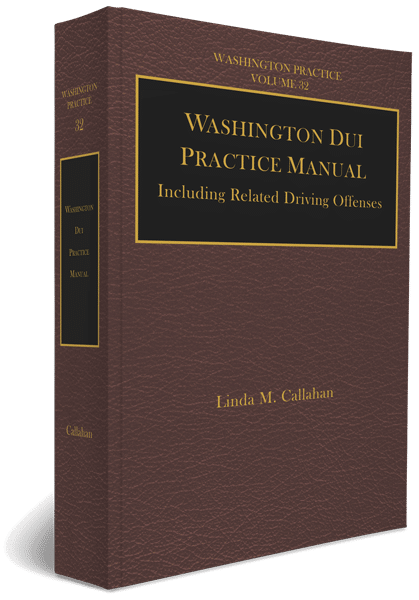During this evaluation, the officer, who is not a physician, pharmacologist, toxicologist, ophthalmologist, or even an EMT, will perform a series of tests including:
Officers trained as DRE’s will look at all the clues they find in each of these steps to attempt to figure out what drug type, if any, is affecting you and if you are indeed impaired. After this evaluation, or if you decline the evaluation, you will be asked to submit to a test of your blood. If you agree, you will be taken to a nearby hospital, or an aid car with EMTs may be called to the scene in order to do a blood draw.

HGN - Eye Test
Other Clues
“Tough DUI Laws Require Tough DUI Lawyers”
Linda M. Callahan
plan of action
know your rights
Washington State has some of the toughest DUI laws in our nation. These laws carry increasingly severe penalties for those who drink and drive. Washington lowered the BAC limit from .10 to 0.08 in January of 1999. Drivers with a blood-alcohol concentration (BAC) at .08 or above can now be convicted of driving under the influence of alcohol. In addition, because public sentiment is so very negative toward drunk drivers, prosecutors will often pursue a DUI conviction even when the driver’s test result is well under .08! This is possible because they can obtain a conviction if they can show the person drove while “affected by” alcohol, and/or marijuana or any drug, including prescription or over-the-counter medications.
Probable Cause
Before you were asked to step out of your vehicle, the officer has been gathering evidence to support the arrest.
Field Sobriety Tests
As Ms. Callahan likes to call them “Bad Science”, FST’s are virtually impossible to pass, especially if the officer is the one grading you.
03
Factory trained, Linda M. Callahan understands the science behind breath testing most attorneys don’t.
With extensive training at Axion Labs in Chicago, Linda M. Callahan has the relevant experience to challenge Blood test evidence.

Contact us today for a 100% Free Consultation
We know DUI Law better than most firms. That’s why we are trusted by Thomson Reuters to Author the DUI Practice Manual for Washington every year since 2006. We literally write The Book on DUI.
Let Us Be Your Legal Advocate
Contact one of our Experienced DUI Attorneys today and get the advice you need now. Learn how to save your license and stay out of jail.

With Offices in Seattle, Olympia, and Shelton, we literally surround the Puget Sound.
81 S. Main St, Seattle, WA 98104
400 Union Ave SE, Ste 200, Olympia WA 98501
625 W. Railroad Ave, Ste 426, Shelton WA 98584
Main Office
Site Links
Attorneys
Copyright 2021 – 2025 | Callahan Law, P.S., Inc.
Disclaimer: The legal information presented on this site should not be construed to be formal legal advice, nor the formation of a lawyer or attorney client relationship. Any results set forth herein are based upon the facts of that particular case and do not represent a promise or guarantee. This web site is not intended to solicit clients for matters outside of the state of Washington.

Complete the form below and our Intake Team will contact you shortly.